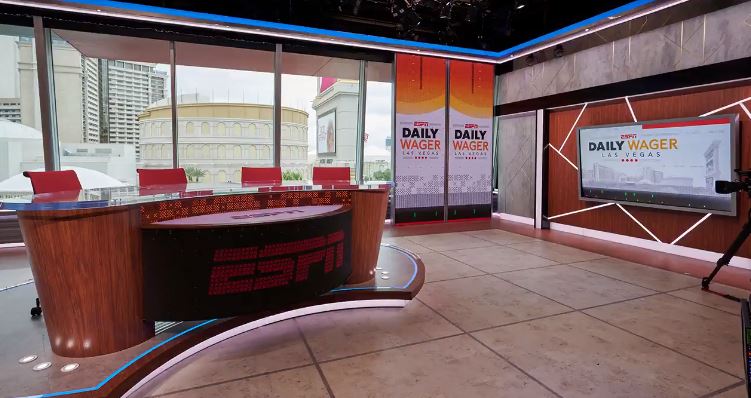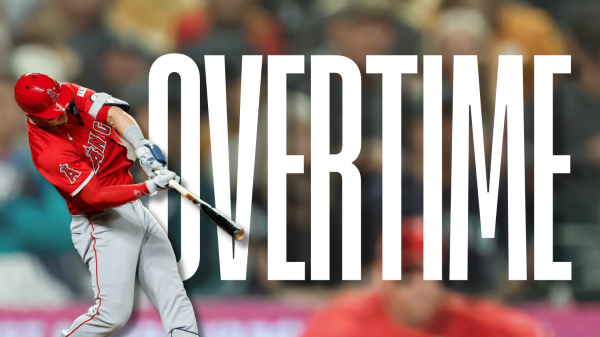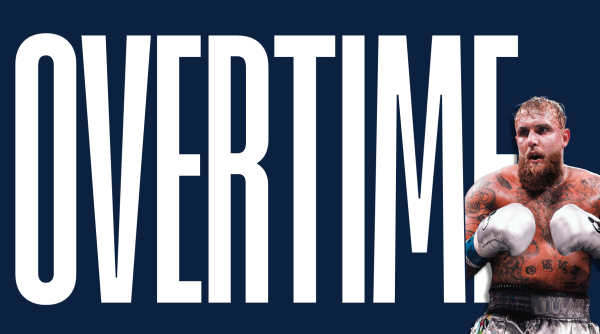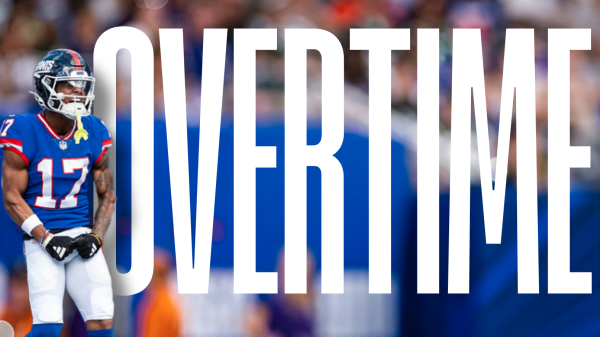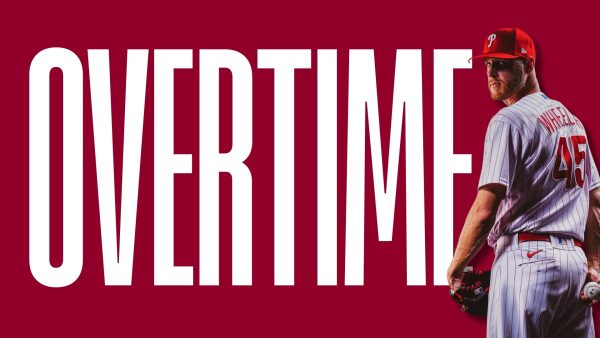Significant to Some
Shows like ESPN’s “The Daily Wager” have further introduced fans to the popularity of sports betting. (Courtesy of Twitter)
After this, I’ll have two more Overtime columns to write as part of The Fordham Ram’s editorial staff. This is my 21st Overtime. I can’t lie to you: for whatever reason, I had a hard time coming up with an idea for the column this week. Sometimes, it just happens that way. I didn’t want to be repetitive, but I didn’t know where to go.
And then, like it was sent from heaven, I was given a nondescript Monday Night Football game that ended with a 30-16 win for the Packers over the hopeless Falcons. I turned that game on as soon as the Yankees closed out their game 1 win over the Rays in the ALDS. Where most people saw a game that was over in the final minutes, I saw an opportunity.
For those who are unfamiliar, in football, like in other sports, you can make a wager on the outcome of the game. One of the most common forms of betting on football is known as “spread betting,” where you bet on a team to either win by more than a certain amount of points or lose by less than a certain amount. You can bet on other things as well, such as how many yards players will get, which player will score the first points of the game, and so on and so forth. You can also take a swing at an “over/under” bet, where you predict whether or not the total points in a game will be more or less than a particular number.
Now, having explained the gist of sports betting, let’s get back to the Atlanta Falcons. Atlanta was down 14 points to the Packers, with possession of the ball in the final two minutes of the game. Within seconds, I scrambled to look up the spread, which had the Packers favored by seven points. The Falcons’ drive ultimately flamed out in a mix of desperation and futility. The Packers “covered” — those who bet on Green Bay -7 were winners, but the last drive of the game was, as some announcers have coyly said, “significant to some.”
Now, I don’t say this from the point of view as someone who often bets on sports. I do say this, though, as a sports fan who has come to appreciate how mainstream gambling has become within the sports consciousness.
As of a few years ago, point spreads were hardly mentioned on broadcasts. Now, you can easily find point spreads on ESPN’s ticker throughout the day. Broadcasters of games don’t make specific gambling references, but they have become more and more willing to make coy references to it. These include Sean McDonough dropping a stellar “this might be meaningful to some,” Chris Fowler calling an unmemorable Giants-Steelers game in Week 1 and the repeated gambling references of Al Michaels, who once said near the end of a game that was 45-10 with four minutes left, “56.5 is a number a lot of the fans are thinking about right now.”
Gambling has become more accepted in the sports lexicon. Those references, which are still coy but more prevalent in recent years, are a subtle wink and a nod to those who are invested in a game even if the outcome is decided.
Some in sports look down on betting, while others choose not to partake. But those who look down upon sports betting are behind current trends. 36 states currently either have or are moving towards legal sports betting. Much of this activity came after a 2018 Supreme Court ruling allowed states to set their own rules on sports betting. In the last couple of years, media companies have featured more and more betting content, including an ESPN show called “The Daily Wager” which focuses on betting-related topics.
Fans and broadcasters have embraced sports gambling, and this is a good thing, if for nothing else than to keep some fans engaged if the games have already been decided. When I’m watching a game, I’m usually at least somewhat aware of the point spread; in addition to potentially being a point of conversation later on, it also gives a good point of reference for who should win and who shouldn’t.
So, for one last time, let’s go back to the Atlanta Falcons. As the final seconds ticked down and the Packers “covered” the seven-point spread, ESPN turned to its top anchor, Scott Van Pelt, for postgame coverage. One of the first segments of Van Pelt’s SportsCenter? A portion of the show called “bad beats,” a montage of plays that happen late in games that, while seemingly innocuous to the final outcome, shift the outcome when it comes to the point spread or the over/under.





































































































































































































